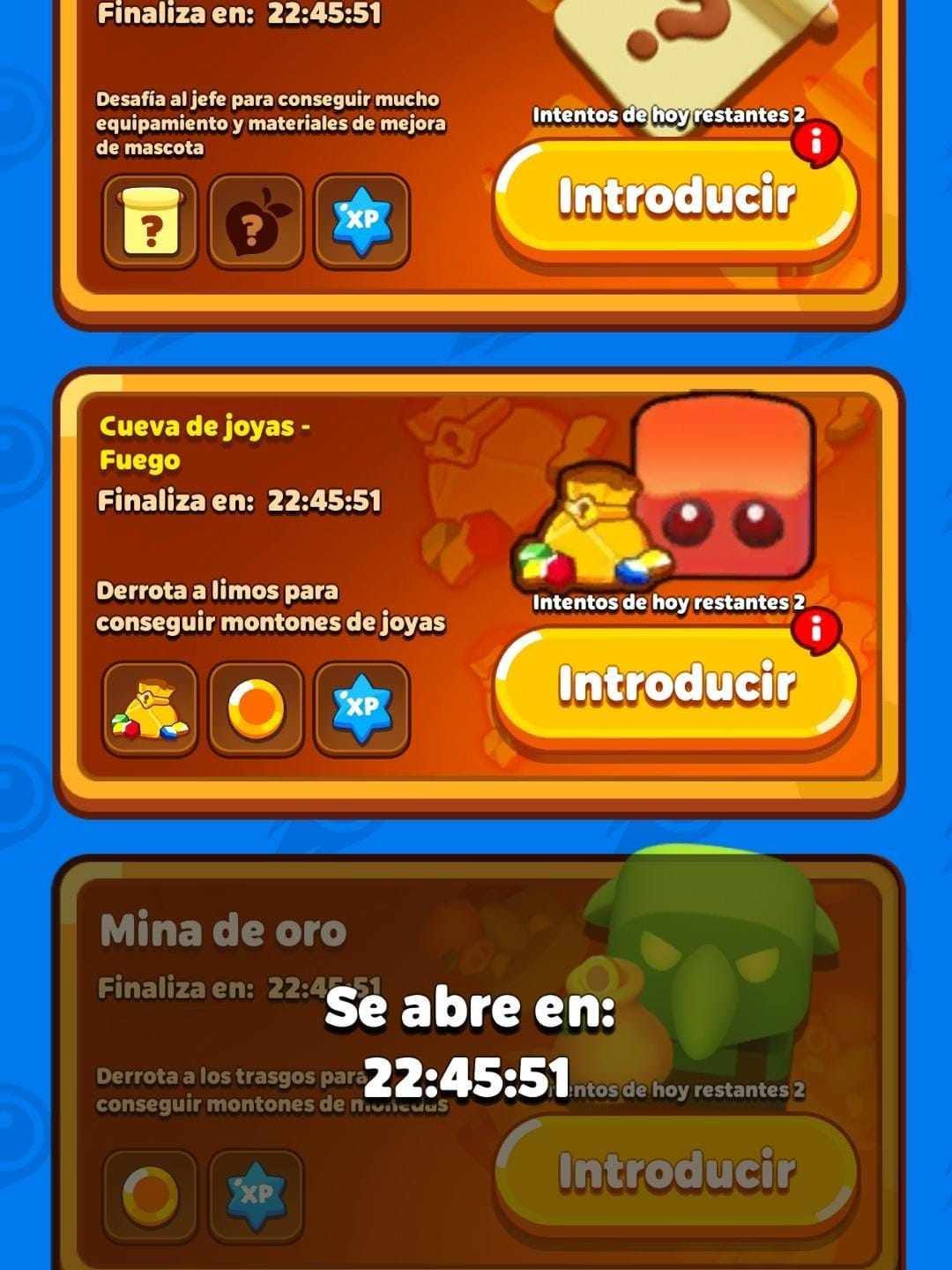Understanding the Psychology Behind Mobile Games' Rewards: Variable Interval Schedules
Before reading:
Psychological Context: Operant Conditioning and Variable Interval Schedule
I must say that I am not a psychologist, but after reading several papers (which I will quote throughout the article), I will try to explain all the concepts required to understand why variable interval schedules can induce players to perform compulsive actions that sooner or later will be regretted.
Ferster, C. B., and Skinner, B. F. (1957) established the concept of Variable Interval Schedules, a type of reinforcement schedule distinguished by the delivery of rewards at various time intervals. Unlike fixed-interval schedules, which provide reinforcement after a certain time, variable-interval schedules provide an element of unpredictability, making it more difficult to predict when the individual will receive the reward.
Basically, it is providing rewards at any unknown moment. For example, email is constantly checked when waiting for important messages, as their arrival is uncertain. Some critical emails arrive immediately, while others take longer. The variable period between receipts of critical emails encourages the habit of checking the email frequently.
In fact, multiple studies have also found that subjects are more resistant to punishment when applying this reward schedule:
A random interval schedule of reinforcement promotes punishment-resistant reward seeking (Seiler et al., 2022)
This is where the "dark pattern" comes into play; not only random rewards result in an addictive dopamine spike when getting good items (I may write an article about this in the future), but if there is also uncertainty about when that reward will be provided, leads to a continuous level of activity.
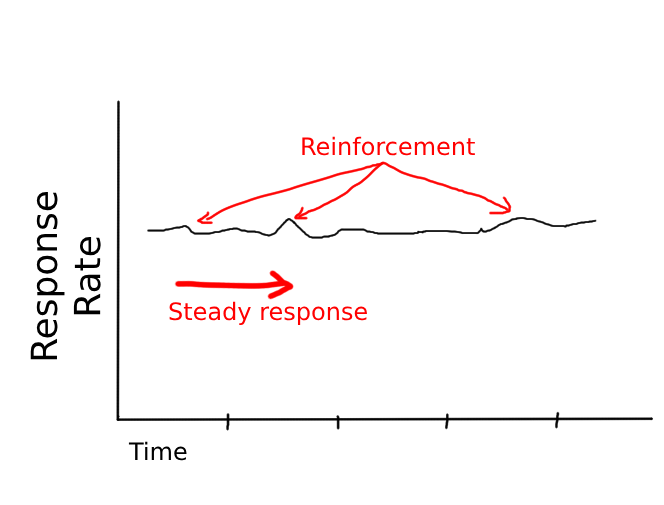
Variable Interval Schedule in Mobile Games: Compulsive or Addictive Game Loops
When this schedule pattern is applied to mobile games, retention gets boosted. It creates a habit of constantly returning to the game to see if reinforcement is available (and I'm talking about true retention, i.e. making people stay against their will).
Any features or rewards that involve appearing at random for a limited time will encourage this behavior, which takes advantage of an unrealistically constructed need.
Examples:
Expedition Game Modes:
Have you ever seen those game modes in which levels start appearing on the map (similar to the events in Last Day on Earth)? What if we also included rarity and high-value reward randomization? This would put the player in the same situation as discussed previously with the email. You never know when a legendary event or set of levels will appear; the variable time between the appearance of important levels encourages the habit of frequently checking the game mode.
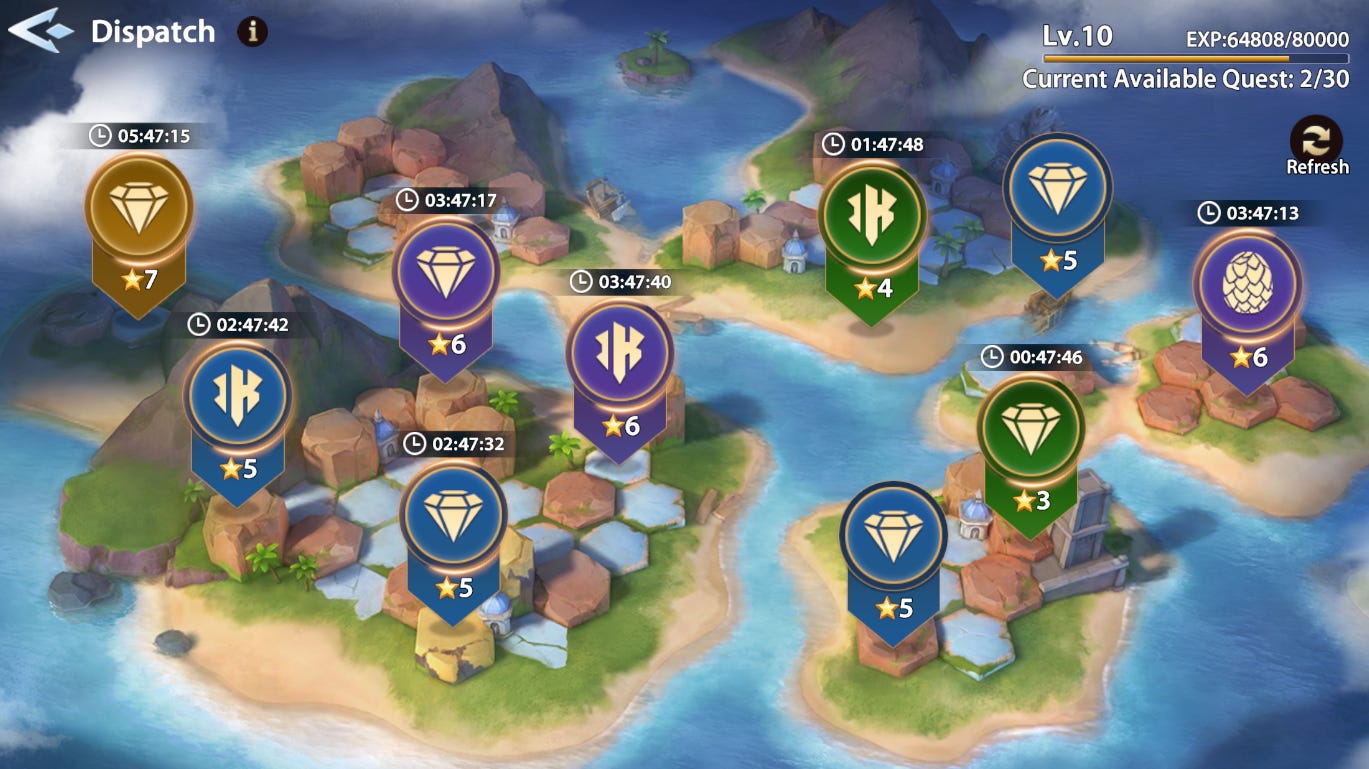
Live-ops events:
All live-ops events come and go and have the best rewards in the game. If a player goes offline for a considerable amount of time, they will lose those rewards (fear of missing out). This encourages players to log in and come back to see what live trading events are taking place.
In some games (such as Dragon City), only one live-ops event can be encountered at a time, so when one appears, the psychological effect of the Variable Interval Schedule is mitigated during the event. However, this does not mean that engagement decreases, as the pressure to complete the event before the timer runs out pushes players to keep playing and spending.
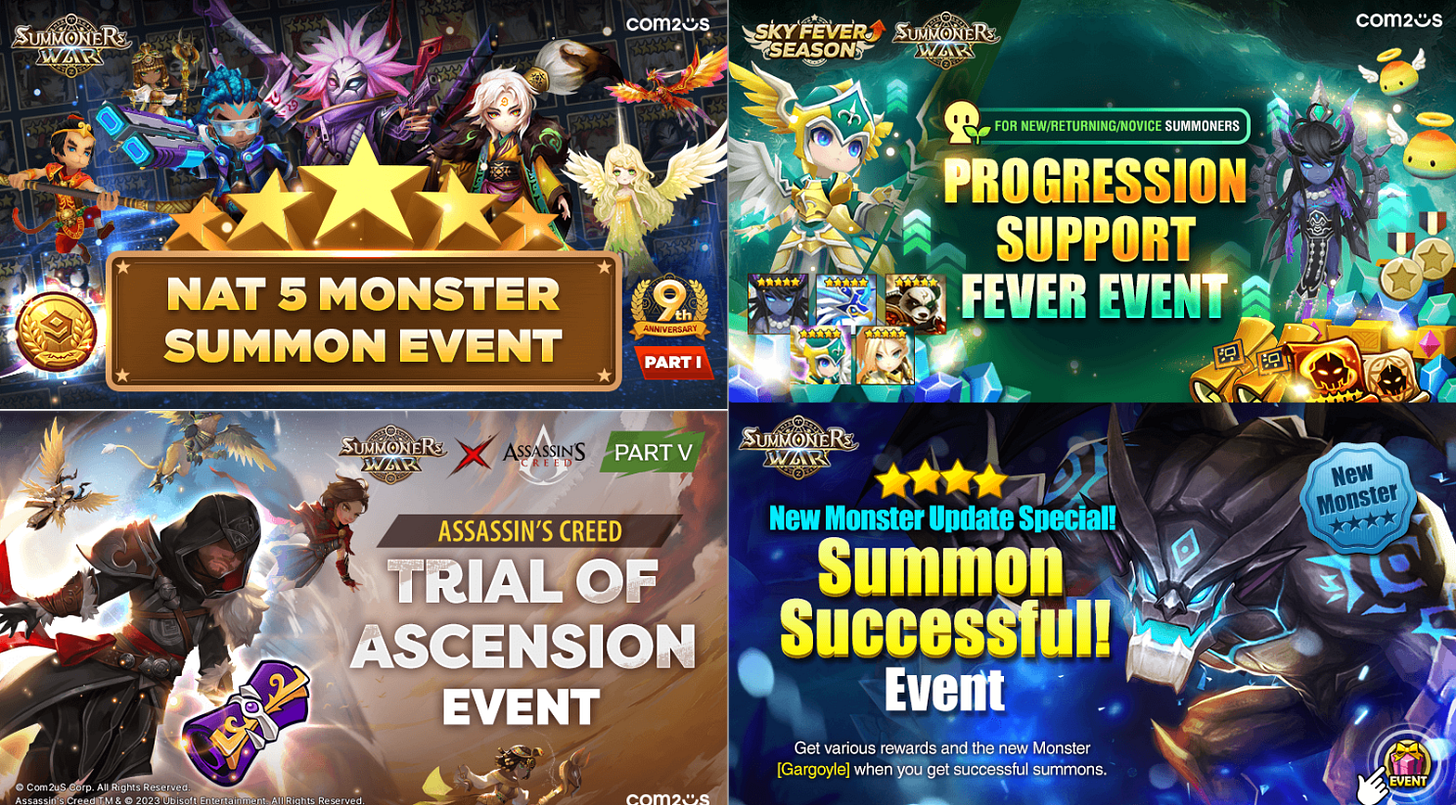
Refreshing shop and offers:
I'm sure you've noticed a pattern with the other examples we've discussed. This one is pretty much the same: an offer that pops up randomly in time, but changing content or shop items that get refreshed randomly.
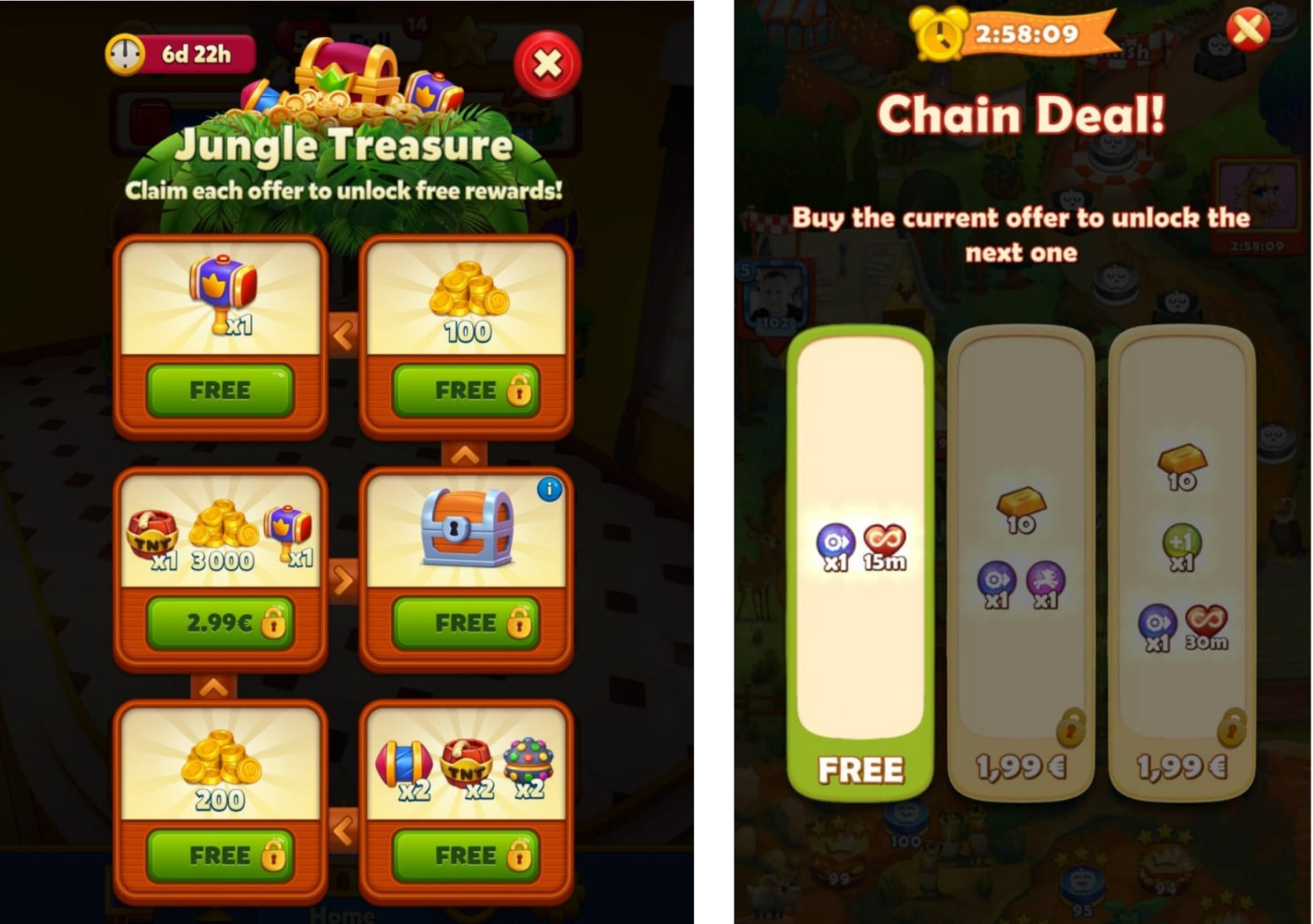
Conclusion:
In conclusion, the use of variable interval schedules in mobile games creates a psychological dynamic that can lead to anxious gaming behaviors. By introducing uncertainty into the scheduling of rewards and events, developers use operant conditioning principles to boost players' engagement. This unpredictability not only produces addictive dopamine spikes but also makes players more resistant to punishment, making it easier to put difficult quests or paywalls.
Creating a sense of urgency and the fear of missing out on important in-game rewards encourages players to retain longer in the game. We as developers must continue to look for new methods to keep players engaged, always keeping in mind the ethical implications of such design decisions. However, if you want to compete with industry leaders, it will be hard not to take them. For the time being, as players, all you can do is be aware of these strategies and ensure they do not lead to compulsive behaviors.
References:
Ferster, C. B., & Skinner, B. F. (1957). Variable ratio. In C. B. Ferster & B. F. Skinner, Schedules of reinforcement (pp. 396–419). Appleton-Century-Crofts. https://doi.org/10.1037/10627-007
Seiler, J. L., Cosme, C. V., Sherathiya, V. N., Schaid, M. D., Bianco, J. M., Bridgemohan, A. S., & Lerner, T. N. (2022). Dopamine signaling in the dorsomedial striatum promotes compulsive behavior. Current Biology, 32(5), 1175-1188.e5. https://doi.org/10.1016/j.cub.2022.01.055
da Silva SP, Lattal KA. Contextual determinants of temporal control: Behavioral contrast in a free-operant psychophysical procedure. Behav Processes. 2006 Feb 28;71(2-3):157-63. doi: 10.1016/j.beproc.2005.11.005. Epub 2005 Dec 20. PMID: 16364564.



